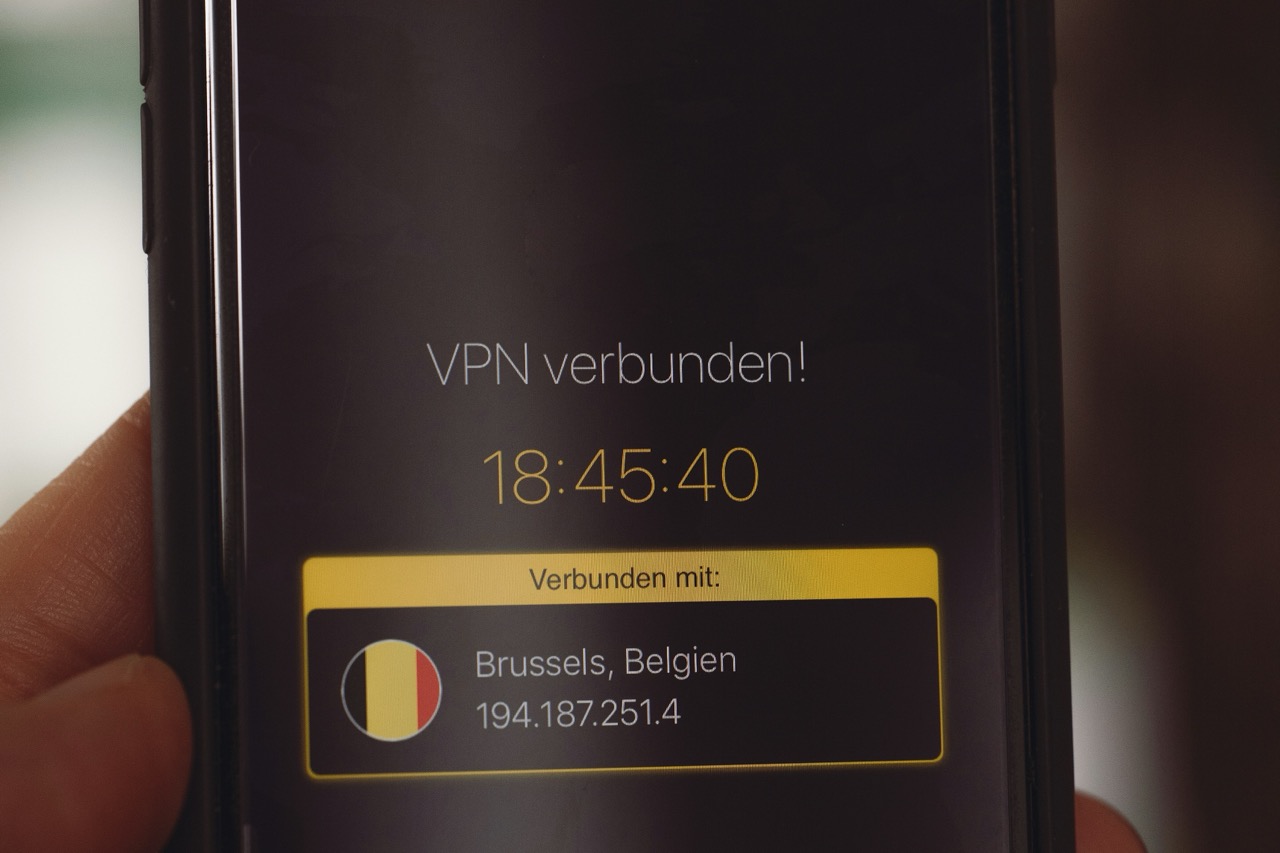In an era where digital currencies are becoming a mainstream financial asset, ensuring the security and privacy of cryptocurrency transactions has never been more critical. Virtual Private Networks (VPNs) have emerged as essential tools for safeguarding sensitive data during these transactions. This article will delve into the significance of VPNs in the realm of cryptocurrency, exploring how they enhance security, protect privacy, and enable seamless trading experiences while navigating potential pitfalls.
Understanding the Role of VPNs in Cryptocurrency Security
VPNs serve as a critical layer of security for cryptocurrency transactions by encrypting the user’s internet connection. When users connect to a VPN, their data is routed through a secure server, which scrambles their online activities and makes it significantly harder for hackers to intercept sensitive information, such as private keys or wallet addresses. This encryption is particularly crucial in an age where cyber threats are rampant, and the financial details of cryptocurrency users are prime targets for cybercriminals.
Moreover, the decentralized nature of blockchain technology offers a unique challenge when it comes to security. While cryptocurrencies aim to provide transparency and immutability, they are still not immune to vulnerabilities. VPNs help mitigate these risks by providing an additional layer of anonymity and protection, ensuring that users can transact without the fear of being surveilled or targeted. This added layer of security also works to discourage various forms of online attacks, such as man-in-the-middle attacks, where malicious actors attempt to intercept and manipulate communications between parties.
Finally, the use of VPNs can also help reduce the risk of phishing attacks, which are common in the cryptocurrency space. By masking the user’s IP address and encrypting their connection, VPNs make it more difficult for attackers to target individuals based on their online behavior. This enhanced security not only protects users but also fosters a more trustworthy environment for engaging in cryptocurrency transactions.
How VPNs Enhance Privacy for Crypto Transactions
Privacy is a paramount concern for cryptocurrency users. Unlike traditional financial transactions, which often involve intermediaries, blockchain transactions are visible on public ledgers. This transparency can be a double-edged sword; while it promotes accountability, it also exposes users to the risk of unwanted attention and data profiling. VPNs address these privacy concerns by anonymizing user activity and disguising their online behavior.
When users initiate a cryptocurrency transaction, their IP address is typically visible to network peers, which can be traced back to their physical location. By using a VPN, users can mask their IP addresses, making it challenging for third parties to link transactions to their real-world identities. This anonymity is especially important for users who value their privacy and want to maintain discretion in their financial dealings.
Additionally, VPNs can protect users against data harvesting by Internet Service Providers (ISPs) and other entities that may monitor online activity. In a landscape where user data is increasingly commodified, the ability to transact privately is invaluable for those involved in cryptocurrency trading. VPNs not only safeguard individual transactions but also foster a culture of privacy in the cryptocurrency ecosystem, encouraging more users to participate without fear of exposure.
Protecting Your IP Address: A Key Benefit of VPNs
One of the standout features of VPNs is their ability to protect users’ IP addresses. In the context of cryptocurrency transactions, maintaining anonymity is crucial, as an exposed IP address can lead to targeted attacks or unwanted scrutiny. By routing internet traffic through a secure VPN server, users can effectively mask their original IP address, making it nearly impossible for third parties to trace their activities back to them.
The risk of IP address exposure is particularly pronounced in the cryptocurrency market, where traders may be more susceptible to cyberattacks. Hackers can exploit publicly available information, such as IP addresses associated with active trading accounts, to launch targeted attacks. VPNs mitigate this risk by providing an obfuscated connection, significantly lowering the chances of being targeted and ensuring that sensitive information remains secure.
Furthermore, protecting your IP address can also help prevent unauthorized access to your cryptocurrency accounts. Many exchanges implement security features that can flag or lock accounts if suspicious activity is detected. By utilizing a VPN, users can reduce the likelihood of their accounts being flagged due to location-based discrepancies, creating a smoother trading experience without compromising security.
Avoiding Geo-Restrictions with VPNs in Crypto Trading
The global nature of cryptocurrency trading can often be hindered by geo-restrictions imposed by various exchanges and platforms. Many trading platforms are only available to users in certain countries, which can be a significant barrier for those looking to participate in the cryptocurrency market. VPNs empower users to bypass these restrictions by allowing them to connect to servers located in regions where the desired services are accessible.
For instance, if a trader is located in a country where access to a specific cryptocurrency exchange is blocked, they can use a VPN to circumvent these restrictions by selecting a server in a region where the exchange operates legitimately. This ability to manipulate location settings not only broadens the options available to traders but also enhances their access to diverse cryptocurrency offerings and trading opportunities.
Additionally, using a VPN can provide users with access to better trading conditions, including lower fees, reduced latency, and more favorable trading pairs. By connecting to servers in different countries, traders can take advantage of varying market conditions and potentially capitalize on profitable trading opportunities that may not be available in their local markets. Through this flexibility, VPNs play a crucial role in optimizing the trading experience for cryptocurrency enthusiasts.
The Impact of VPNs on Transaction Speed and Reliability
While VPNs offer a myriad of security and privacy benefits, their impact on transaction speed and reliability is a topic of considerable importance. In an environment where speed can often determine the success of a trade, the potential for VPNs to introduce latency should not be overlooked. However, many reputable VPN providers have optimized their networks to ensure minimal impact on connection speeds, allowing users to enjoy both security and efficiency.
The speed of a VPN connection can vary significantly depending on several factors, including the distance to the server, the level of encryption used, and the overall server load. Users may experience slower speeds when connecting to remote servers; however, many premium VPN services offer dedicated servers specifically designed for high-speed performance in cryptocurrency trading. By choosing the right VPN, traders can minimize latency while still benefiting from enhanced security features.
Moreover, reliable VPNs can contribute to a more stable trading experience by providing users with uninterrupted access to their accounts and decentralized networks. Stability is crucial in the fast-paced world of cryptocurrency trading, where delays or disconnections can lead to missed opportunities and financial losses. By leveraging a high-quality VPN service, users can maintain consistent access to their trading platforms, ensuring that they can execute transactions quickly and efficiently.
Best Practices for Choosing a VPN for Cryptocurrency Use
When selecting a VPN for cryptocurrency transactions, users should prioritize security and privacy features. Look for VPNs that offer robust encryption standards, such as AES-256, which provides a high level of protection against potential breaches. Additionally, a no-logs policy is essential; this means the VPN provider does not record user activity or connection data, further enhancing privacy.
Moreover, consider the geographical location of the VPN’s servers. A wider network of servers allows users to choose locations that can help them bypass geo-restrictions while optimizing connection speeds. It is advisable to select a VPN that has servers in regions known for having favorable cryptocurrency regulations, as this can facilitate smoother transactions and access to a broader range of exchanges.
Lastly, evaluate the VPN’s compatibility with the devices and platforms you intend to use for cryptocurrency trading. Many reputable VPNs offer support for multiple devices, including desktop and mobile applications, ensuring users can maintain security regardless of how they access the cryptocurrency market. Reading user reviews and seeking recommendations from trusted sources can also inform your choice, helping you to identify a VPN that meets your specific needs.
In conclusion, the integration of VPNs into cryptocurrency transactions is not merely a precautionary measure; it is a fundamental component of a secure and private trading experience. As the landscape of cryptocurrency continues to evolve, the importance of protecting personal data and ensuring anonymity will only grow. By understanding the benefits of VPNs, users can navigate the complexities of the cryptocurrency environment with confidence, safeguarding their investments and personal information against the myriad threats that exist in the digital sphere.










